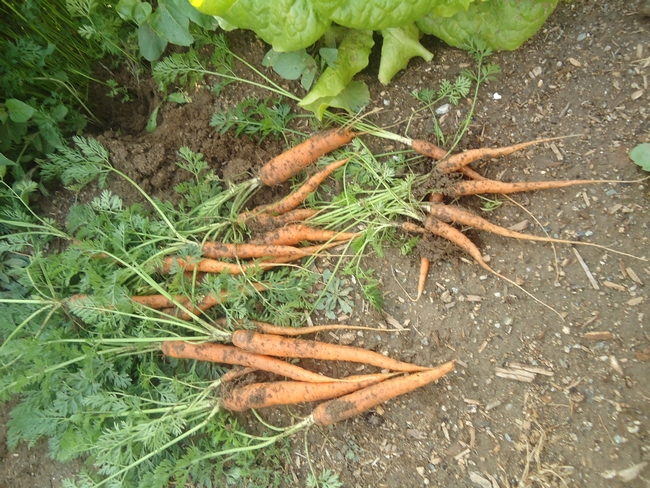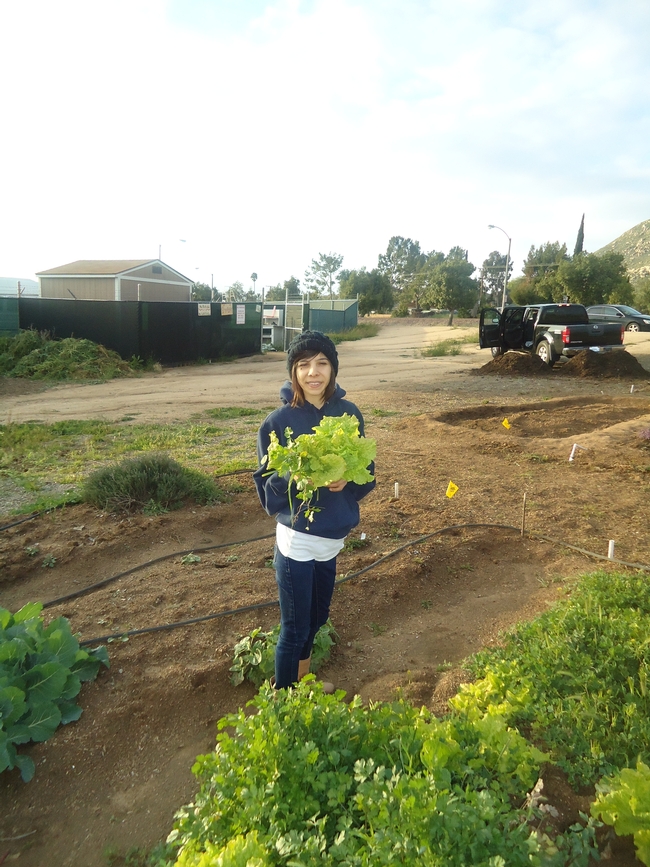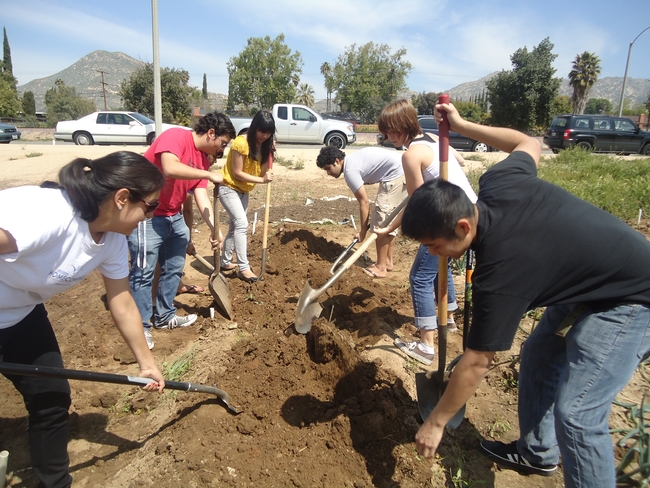
Growing your own food. Raising awareness of food and environmental injustice. And creating a green community. These are the goals of the UC Riverside community garden initiative called Cultivate R-Space. At the community garden – a student-run “living experiment” that partners with UCR Sustainability – students grow and harvest their own food such as tomatoes, squash, potatoes and lettuce. Those who want just the experience of working in the garden grow flowers.
Located on campus, the nearly quarter-acre community garden has 20 plots to offer. Tools, water and seeds are provided at no charge to users. UCR Dining Services supplies the compost.
“It’s not as easy to work in the garden as it sounds,” cautions Cynthia De Leon, a junior who got involved in managing and using the garden last year. “It requires energy and a whole lot of passion. If anything, the garden teaches you how hard it is to grow food and exposes you to issues surrounding food and agriculture. Working in the community garden takes commitment, time and effort. To make sure interested students are fully dedicated, we ask that they first volunteer about two hours a week. If after a few weeks they continue to show an interest, we assign them a plot.”
A plan being worked out now by Cultivate R-Space is to allow faculty and staff to use the community garden for a small membership fee. The fees will kick in when the garden moves, in the very near future, to a location close to campus, occupying about an acre of land. Plans are also under way to get colleges on campus – the College of Natural and Agricultural Sciences, the College of Humanities and Social Sciences, and the Bourns College of Engineering – involved to promote research and hands-on learning about various social issues around agriculture and the modern food system. Serving as a learning platform, the community garden already is being used for soil science; the Science, Technology, Engineering and Mathematics (STEM) program; and Undergraduate Research in the Community.
“Our goal is not to feed everyone with this garden, and we understand we cannot grow food for all,” says junior Elizabeth Tizcareno, who also got involved with the garden last year. “This space is a model for tangible solutions that other communities in Riverside and elsewhere can adopt. The garden is an integral tool for researching how to develop sustainable neighborhoods. It is about developing a model that can be recreated elsewhere in order to sustain ourselves, our families, and live healthier and more equitable lives.”

The community garden has helped launch an Urban Garden Seminar at UCR that De Leon and Tizcareno facilitate. Held in the spring quarter, the weekly seminar includes a discussion of a food-related topic, guest speakers and field trips.
“The seminar has opened up an invaluable learning space – with hands-on experience – for students to learn about the garden and agriculture, as well as food injustice, such as the very high cost of some foods, occurring in Riverside and elsewhere,” Tizcareno says. “Food connects people and facilitates community formation. The goal of the seminar is that the students, even after they graduate, will create gardens in their communities for growing food.”

Both De Leon and Tizcareno plan to attend freshman orientation each year to spread the word about Cultivate R-Space and how it works with community-based organizations such as Growcology, a nonprofit in Riverside that creates sustainable programs, and Riverside’s Parks and Recreation Department. They hope to recruit many new users of the UCR Community Garden.
They plan, too, to take with them a sustainability award that Cultivate R-Space received in July 2011 from the California Higher Education Sustainability Conference: the Best Practice Award for Campus-Community Partnerships.
More information about Cultivate R-Space can be obtained by emailing sustain@ucr.edu or ucrurbangardenseminar@gmail.com.